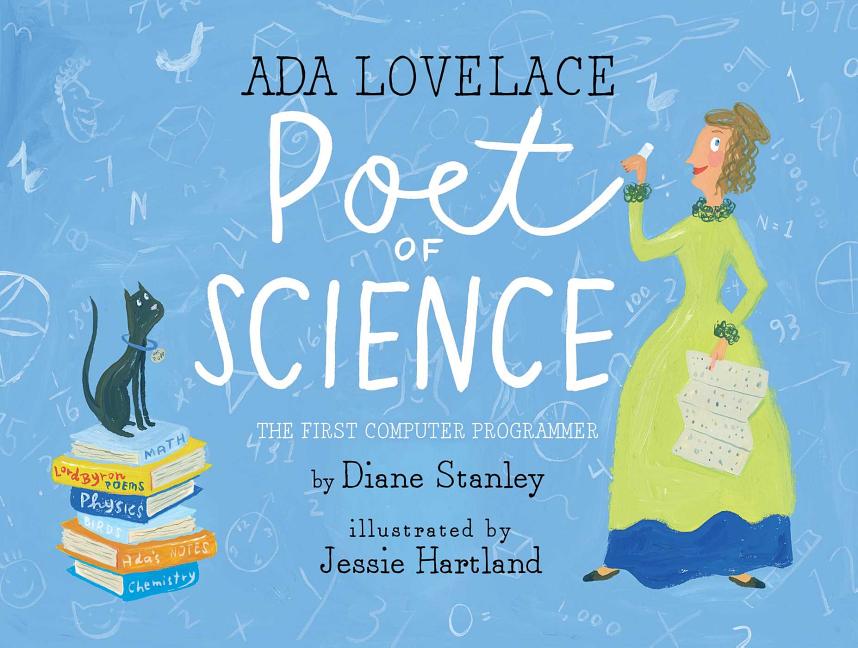Book Description
for Ada Lovelace, Poet of Science by Diane Stanley and Jessie Hartland
From Cooperative Children's Book Center (CCBC)
Born in 1815, Ada Lovelace was the daughter of a poet father (Lord Byron) and a mother (Lady Byron) who nurtured her curiosity in math, science, and technology. Ada loved both the arts and sciences. When her friend Charles Babbage asked for Ada’s help in explaining what the “Analytical Engine” he designed could do if it were built, Ada “had the vision to see, better even than Babbage himself, how much more a computer could do besides just processing numbers.” Ada took on the task of explaining how the machine’s ability to function required mathematical operations be converted into digital format, or code. In other words, she pioneered programming. This engaging, whimsical look at Ada’s brief life (she died at 36) and her extraordinary accomplishment in writing what is considered the first computer program shows that both knowledge and imagination are necessary for advances in technology and science, and that Ada was gifted in both. An author’s note tells more about Ada’s Notes and their impact, and acknowledges some have challenged Ada’s authorship (an idea Stanley refutes). A timeline, selected bibliography, and glossary are also included in a volume set against illustrations that are blithe but never make light of Ada or her work. (Ages 6–10)
CCBC Choices 2017. © Cooperative Children's Book Center, Univ. of Wisconsin - Madison, 2017. Used with permission.


